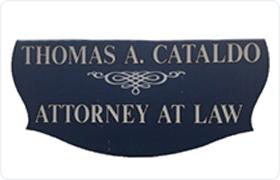Boonton DUI-DWI Lawyer, New Jersey
Sponsored Law Firm
-
 x
x

Click For More Info:
-
Thomas A. Cataldo, Attorney at Law
52 South Street Morristown, NJ 07960» view mapCriminal Defense Law Tip The Scales In Your Favor!
Thomas A. Cataldo, Attorney at Law has the legal experience you need at affordable rates that can't be beat.
800-834-4291
Albert Cernadas
✓ VERIFIEDCriminal, DUI-DWI, Misdemeanor
Albert Cernadas Jr. is the former First Assistant Prosecutor of Union County and Certified by the Supreme Court of New Jersey as a Criminal Attorney. ... (more)
Brian M. Dratch
✓ VERIFIEDPersonal Injury, DUI-DWI, Employment, Real Estate, Traffic
At Franzblau Dratch, P.C. we provide our clients with legal services in a comprehensive, yet cost effective manner, while at the same time reflecting ... (more)
Gregg A. Wisotsky
Workers' Compensation, DUI-DWI, Products Liability, Medical Malpractice
Status: In Good Standing
FREE CONSULTATION
CONTACTGerald J. Kelly
DUI-DWI, Criminal, Contract, Business Organization
Status: In Good Standing Licensed: 49 Years
Lynne Goldman
Workers' Compensation, Family Law, DUI-DWI, Medical Malpractice
Status: In Good Standing
Elizabeth Vengen
Workers' Compensation, Family Law, DUI-DWI, Medical Malpractice
Status: In Good Standing
Michael I. Berliner
DUI-DWI, Insurance, Medical Malpractice, Car Accident, Personal Injury
Status: In Good Standing
FREE CONSULTATION
CONTACT Thomas Cataldo Morristown, NJ
Thomas Cataldo Morristown, NJ Practice AreasExpertise
Practice AreasExpertise


